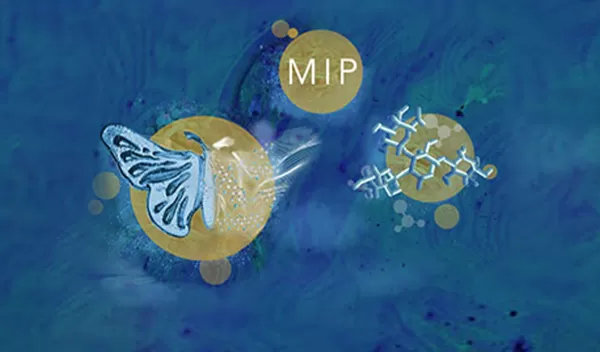
New materials innovation platforms will accelerate discovery, development of new synthetic biomaterials
At the U.S. National Science Foundation, basic research leads the way in developing and harnessing the potential of biotechnology, which will directly impact people's lives, society, and the nation's economy. This year's Materials Innovation Platforms competition focused explicitly on the convergence of materials research with biological sciences to develop novel materials. Such materials could replace petroleum-based products and advance food and life sciences.
"The power of materials research is that breakthroughs often transcend traditional scientific disciplines," says Linda Sapochak, director of the Division of Materials Research at NSF. "With this $50 million investment in biomaterials research and facilities, diverse teams of materials researchers, biologists, chemists and data scientists across the nation can come together to creatively solve common problems."
Inspired by the Materials Genome Initiative, Materials Innovation Platforms provide a framework of seamlessly integrated advanced computational and experimental tools and shared data and machine learning capabilities for participants, external users, and other scientists. From the discovery to the deployment of advanced materials with predesigned properties these platforms enable cost-effective and dramatically accelerated research.
Two new Materials Innovation Platforms will support state-of-the-art facilities for users nationwide, as well as multi-institute teams for internal research and student training.
- Automating the Synthesis of Rationally Designed Glycomaterials: an NSF Materials Innovation Platform, or GlycoMIP, comprises a team of researchers at Virginia Tech, the University of Georgia, and other universities. They aim to synthesize and characterize new glycomaterials, which are carbohydrate-like, using unique and automated tools to further the understanding of these important sugar-based biomolecules. Applications range from drug development to medical and food science.
- BioPolymers, Automated Cellular Infrastructure, Flow, and Integrated Chemistry: Materials Innovation Platform, or BioPACIFIC MIP, pairs scientists at the University of California, Santa Barbara, and the University of California, Los Angeles. Their research will develop novel high-throughput methods for synthesizing polymers by harnessing biological processes. Such biopolymers, with designed properties, could outperform and become an environmentally friendlier replacement for petroleum-based products such as plastics.
The Materials Innovation Platforms program is relatively young — this biomaterials-focused competition is only the second. The first competition, in 2015, focused on crystalline materials, resulting in two Materials Innovation Platforms studying 2D structures that will aid in the evolution of next-generation electronics and computers.
